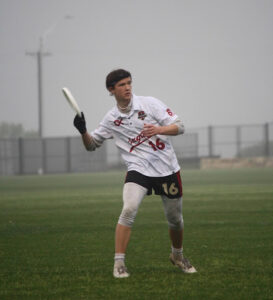College football sits in the rearview mirror and Division I basketball’s “March Madness” is in full swing across the nation. Fans have filled out brackets and teams fight for the coveted National Championship trophy and cut the nets in victorious celebration.
Corporate sponsors and the NCAA will celebrate another successful season of profit while the winning team will celebrate its victory. According to US News, CBS and Turner Broadcasting make more than $1 billion off the playoff games, while the NCAA makes over $6 billion annually.
What has some in a frenzy are not the games themselves, but the fact players do not see the fruits of their labor after the season ends. Although the NCAA has rejected the idea of paying college athletes, individuals such as ESPN college basketball analyst Jay Bilas have repeatedly called for an end to what he deems true “madness.”
“It is not immoral for the NCAA to make money off athletes, but it is profoundly immoral for the NCAA to restrict athletes from receiving compensation while everyone else profits,” Bilas said in his article for the New York Times.
Those in favor of paying college athletes suggest a free-market approach, which claims athletes should reap whatever the market will bear. They also support the Olympic Model that states players should get income from endorsements, autographs and control of their image and likeness.
“Is offering cash compensation really that much worse than the current system, in which universities build lavish facilities and spend absurd sums on their programs to lure good players?” Joe Nocera article said in his article in the New York Times Magazine. “Doesn’t it make more sense to give some of that money to the players?”
Despite advocates like Bilas and Nocera, opposition to paying college athletes continues to run deep. USA Today reports several college conference commissioners recently formed the Coalition to Save College Sports, whose goal is to “get the message out that college athletes already have a good deal.”
“We’re still supporting them as students, not as somebody we’re paying to play a game,” NCAA President Mark Emmert said in his interview with the Associated Press. “When you move from that model to a model where students who play the game are paid, well now you don’t have student athletes anymore. We already have that. That’s the NFL and the NBA and Major League Baseball.”
Emmert argues there are too many unknowns to consider paying athletes.
“Who would set the pay?” Emmert said. “Would it be the same for all sports? Do women athletes get paid? We are the only nation that has intercollegiate athletics. It’s a uniquely American tradition. Turning them into professional athletes is not the solution to the challenges we face right now.”
Students who are potentially impacted on the Oklahoma Christian University campus are interested in the conversation.
“As college athletes with strenuous schedules from our sport and a heavy class load, there is not time for a job as well,” junior softball player Jordan Chism said. “In my eyes, giving us a salary would be nice.”
Although talk of paying athletes at all levels of college has been discussed, Oklahoma Christian Athletic Director Curtis Janz said he doubts a small university like Oklahoma Christian can pay such for such luxuries.
“I don’t believe any Division II, Division III or NAIA school could act financially responsible and get student athletes a stipend,” Janz said. “Division I institutes can give student athletes a cost of attendance stipend, where each university can determine what it costs beyond a scholarship to attend a university.”
According to Janz, Title IX complications revolve around the issue as well because those in favor of paying athletes plan to only include football and men’s basketball players.
Despite the fact he would fit under that label, junior basketball player Luis Lopez said he hopes the proposal will not pass.
“In the grand scheme of things, I don’t think college athletes should be paid,” Lopez said. “Universities invest sometimes hundreds of thousands of dollars into student athletes and I feel that is more than enough to keep an athlete stable.”
Lopez said that if college athletes are paid sometime in the future, he doubts it will impact those at Oklahoma Christian.
“With funding in DII so much lower than DI, it will be hard to get enough money to pay the athletes,” Lopez said. “If anything, I hope they allow the teams who bring in the most revenue to pay players at the university’s discretion.”



















Be First to Comment